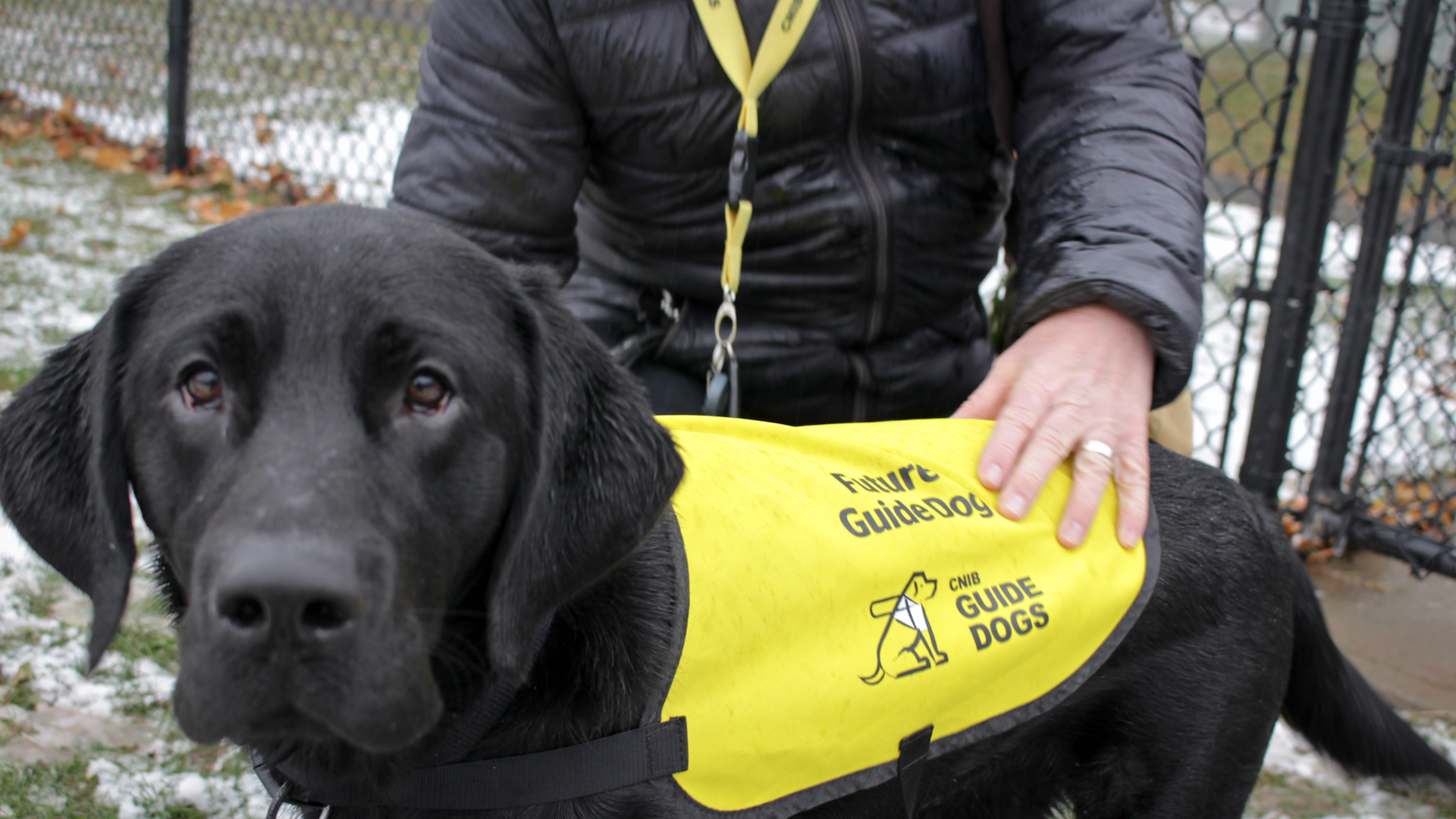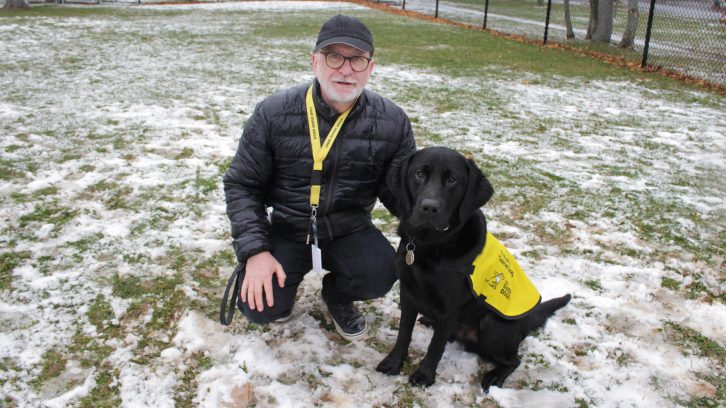Dogs
Volunteering time and love to raise a future guide dog
Nine dogs currently in Halifax, CNIB seeks puppy raisers for new dogs arriving in February

caption
11-month-old Lewis practices wearing his guide dog bib put on by foster Daniel O'BrienGiving up a fluffy, Labrador retriever puppy after raising it for a year might be difficult for some people. For Daniel O’Brien, it’s just part of being a volunteer.
Earlier this year, the Canadian National Institute for the Blind launched a program to foster eight-week-old future guide dogs in Halifax, and O’Brien was one of their first volunteers.
“It’s a great project and I’m so happy it’s happening here,” he said.
Even though he doesn’t have any personal experience with vision impairment, O’Brien knows of the challenges it poses and was happy to help. Related stories
O’Brien is looking after an 11-month-old black lab named Lewis, one of nine dogs being trained in Halifax, since January. In March, he will say goodbye to Lewis as the dog heads off to advanced guide dog training. O’Brien likes to focus on the positive part of the experience.
“This is 400 days of joy and one day of crying,” he said.
The CNIB now needs more volunteers, as 10 new puppies will arrive next year, beginning in February.
“Halifax has been tremendously welcoming,” said Catherine Kieran, communications manager for CNIB in Halifax. “This is the perfect city to raise a future guide dog.”
O’Brien has already signed up, with plans to take in another puppy after Lewis.
The dogs spend 12 to 15 months with their foster family, learning basic obedience commands and being socialized with other dogs and people. The dogs even take trips on public transit to get accustomed to their future job.
Once they complete basic training, the dogs will travel to Ottawa for six months of advanced education with a guide dog handler. They are then paired with a guide dog user and begin their career, which could last their whole adult life.
CNIB has a list of things potential volunteers should consider. It includes:
- being over 18 years of age,
- experience raising dogs,
- living in suitable housing,
- being able to give up the dog after raising it for a year.
So far, Kieran said, the first four puppies who arrived in Halifax are on track to “graduate” to the advanced training centre. They will complete their general education by early 2019, then depart for Ottawa.

caption
Daniel O’Brien and Lewis pose in Halifax’s Ardmore Park.O’Brien has experience training dogs and is able to work from home as a graphic designer, which he said has made it much easier to raise Lewis. While the experience is rewarding, O’Brien said it’s also a challenge.
“It’s a big commitment to look after these guys,” said O’Brien.
Lewis goes for regular play dates with other future CNIB guide dogs, including his brother Vincent, at Ardmore Park in Halifax’s west end. The park is restricted to service dogs and requires a key to access. CNIB’s dogs aren’t permitted to play off-leash with unfamiliar dogs, due to the chance of injury.
Foster families will be invited to their dog’s graduation in Ottawa next year. While there, they will meet the dog’s new owner, a guide dog user from somewhere across Canada. O’Brien expects it will be an emotional time to see Lewis again.
But by then, he’ll have a new dog.
“I will get a new puppy and start all over again,” said O’Brien with a laugh.

